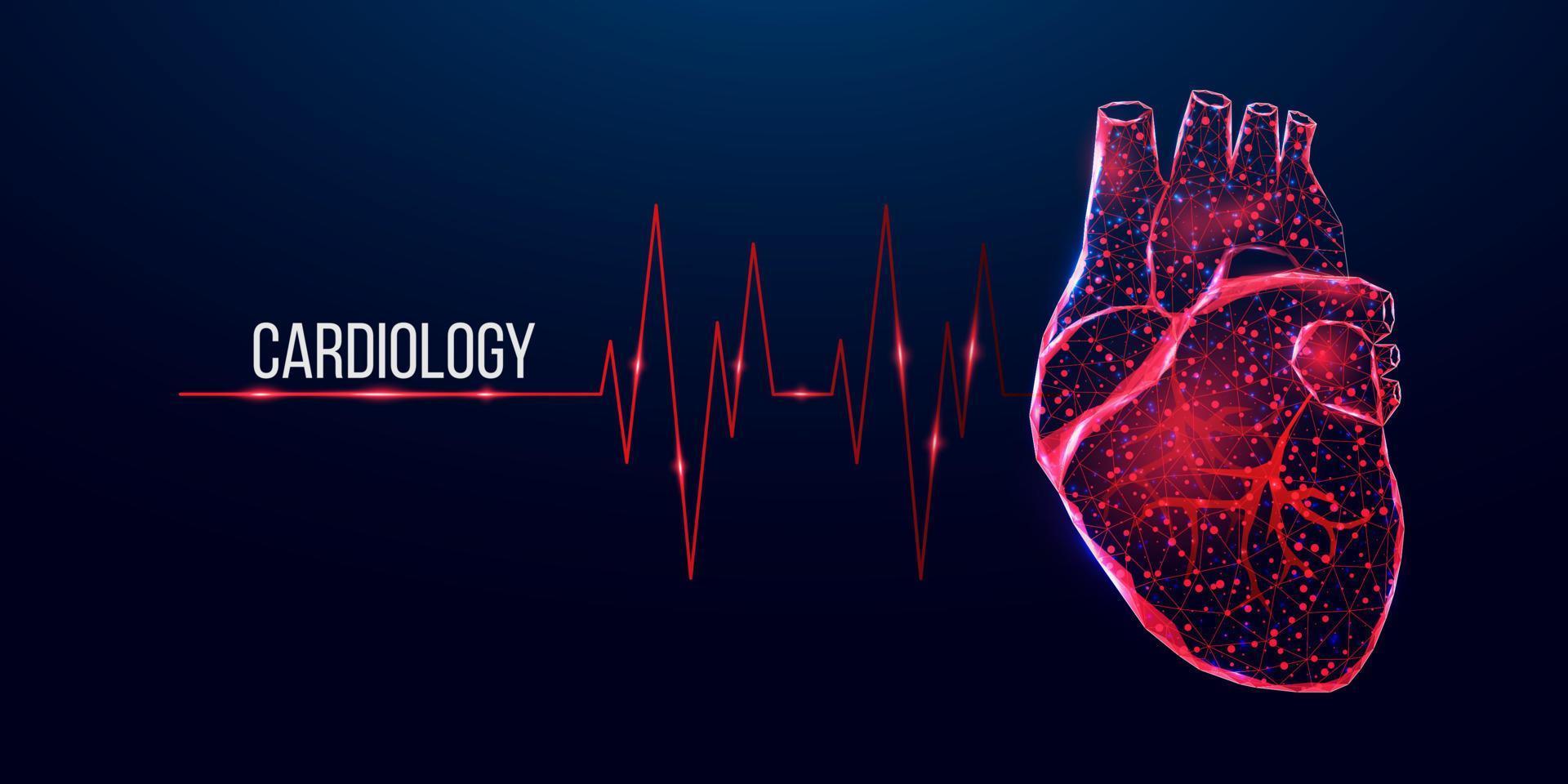The Function of Cardiology in Precautionary Health And Wellness and Health Providers
Cardiology is increasingly recognized for its pivotal role in preventative health and wellness and wellness services. By stressing proactive methods, cardiologists aim to minimize the incidence of cardiovascular diseases. This approach encompasses threat assessments, way of life modifications, and normal testings. Via these initiatives, patients are encouraged to take control of their heart wellness. Nevertheless, the combination of modern technology and cooperation with other healthcare service providers raises essential questions concerning the future of preventative treatment. What might this evolution entail?

Understanding Preventative Cardiology
Comprehending preventative cardiology entails identifying its vital role in decreasing heart disease danger through aggressive measures. This branch of medication highlights the significance of lifestyle modifications, consisting of workout, diet regimen, and stress management, to stop heart-related issues prior to they emerge. It supports for routine health screenings and education and learning to equip individuals in making informed wellness choices.Preventative cardiology additionally includes the identification of risk variables such as high blood pressure, diabetic issues, and high cholesterol, advising individuals to adopt healthier behaviors - Cardiology Jupiter. By concentrating on avoidance instead than response, this technique not just enhances specific health and wellness outcomes yet likewise reduces the total problem on healthcare systems. Furthermore, it advertises partnership amongst health care neighborhoods, companies, and clients, fostering an all natural approach to heart wellness. Ultimately, recognizing preventative cardiology inspires a shift in the direction of a proactive mindset, prioritizing lasting wellness and well-being
Danger Analysis and Monitoring
Risk assessment is crucial in identifying cardiovascular dangers that can bring about serious health problems. Efficient monitoring of these threats often includes carrying out way of living alteration strategies, such as improved diet plan and boosted exercise. By recognizing and dealing with these variables, people can greatly minimize their chance of establishing heart diseases.
Recognizing Cardiovascular Dangers
Various elements contribute to cardiovascular health, identifying cardiovascular risks is important for efficient prevention and monitoring. Cardiovascular threat analysis includes examining different elements, consisting of family members background, way of living, sex, and age behaviors such as smoking cigarettes and physical lack of exercise. Furthermore, health problems like high blood pressure, diabetic issues, and high cholesterol substantially influence an individual's threat profile. Healthcare experts use devices such as threat calculators and biomarker tests to evaluate these risks and stratify clients appropriately. Early identification allows targeted interventions, directing individuals towards proper administration methods. By identifying these dangers, cardiologists can collaborate with clients to create tailored plans that highlight surveillance and aggressive treatment, ultimately decreasing the likelihood of negative cardio occasions.
Way Of Life Alteration Approaches
Reliable lifestyle adjustment approaches play a crucial function in managing cardio wellness and minimizing affiliated risks. These strategies encompass dietary adjustments, enhanced physical task, and smoking cigarettes cessation. A heart-healthy diet plan abundant in fruits, veggies, entire grains, and lean proteins can considerably decrease cholesterol levels and blood pressure. Routine physical activity, such as cardiovascular exercises, enhances the heart and boosts flow. Furthermore, giving up cigarette smoking reduces the danger of heart condition and improves overall health. Healthcare professionals typically utilize danger analysis devices to customize these adjustments to private demands successfully. By incorporating way of living become routine treatment, cardiologists can equip people to organize their heart health and wellness, eventually resulting in enhanced results and decreased health care prices.
Way Of Life Modifications for Heart Health
To preserve ideal heart wellness, people must embrace a selection of way of life modifications that substantially lower the probability of heart diseases. A well balanced diet rich in fruits, veggies, whole grains, and lean proteins is crucial. Lowering hydrogenated fats, trans fats, and sodium intake can considerably reduce cholesterol levels and high blood pressure. Routine physical task, such as vigorous walking or biking for a minimum of 150 mins each week, also plays a significant role in enhancing and strengthening the heart circulation.Additionally, handling anxiety with methods like mindfulness and meditation can have a favorable effect on heart health. Staying clear of cigarette items and limiting alcohol consumption further contribute to a healthier cardiovascular system. Preserving a healthy weight is essential, as obesity is a major threat element for heart condition. By integrating these way of life changes, people can promote not only their heart health and wellness yet also their general health, bring about an extra energetic and vivid life.
The Significance of Normal Screenings
In addition to way of living alterations, regular screenings play an important role in preserving heart wellness and protecting against cardiovascular illness. These assessments are considerable for recognizing threat factors such as hypertension, high cholesterol, and diabetic issues, which can bring about serious problems if left untreated. Cardiologists advise regular analyses to monitor heart function and identify abnormalities early, enabling for prompt intervention.Screenings, which might include blood electrocardiograms, examinations, and echocardiograms, give important data for tailored therapy strategies. This aggressive approach encourages people to make educated decisions concerning their health, boosting total health. Additionally, routine check-ups promote a more powerful doctor-patient partnership, urging open discussion about heart health concerns.
Integrating Technology in Preventative Care
Welcoming technology has revolutionized preventative treatment in cardiology, supplying innovative tools that boost patient tracking and interaction. Wearable tools, such as smartwatches and physical fitness trackers, enable people to check their heart price, task levels, and overall health and wellness metrics in real-time. These gadgets not only offer immediate comments however additionally promote information showing to medical care suppliers, permitting timely treatments when necessary.Additionally, telemedicine has actually emerged as a famous feature in cardiology, making it possible for remote examinations and follow-ups. This availability guarantees that people can receive treatment without the obstacles of travel and time restraints. Mobile health applications additional support preventative procedures by offering individualized insights and pointers for medication adherence, lifestyle changes, and scheduled testings.
Patient Education And Learning and Empowerment
Empowerment through education is important in the domain name of preventative cardiology, as informed individuals are a lot more most likely to check my blog participate in aggressive health habits. By comprehending their cardiovascular health and wellness, clients can make educated decisions regarding way of living adjustments and adherence to treatment strategies. Educational efforts, including workshops, informational pamphlets, and on-line resources, offer to enhance client understanding about risk variables such as high blood pressure, cholesterol degrees, and the significance of normal exercise.Moreover, empowering clients promotes a collaborative technique to health and wellness monitoring. When people know their problems and the implications of their choices, they look at this site are more probable to take part in conversations with doctor, bring about customized treatment techniques. This collaboration not only advertises responsibility however also improves motivation for maintaining a heart-healthy lifestyle (Cardiologist near me). Ultimately, patient education is a cornerstone of preventative cardiology, furnishing individuals with the tools needed to take cost of their cardio health and health
Teaming up With Various Other Healthcare Professionals
Effective individual education prepares for collaborative efforts among healthcare experts in the area of preventative cardiology. Cardiologists, primary care medical professionals, nutritionists, and psychological health and wellness professionals should operate in synergy to enhance patient results. By sharing approaches and insights, these specialists can create comprehensive care plans that address both physical and mental facets of heart health.Regular interdisciplinary conferences foster interaction, making certain that all team participants are educated about person progression and obstacles. This partnership helps with prompt treatments and modifications to treatment plans, boosting the effectiveness of preventative measures.Furthermore, incorporating technology, such as shared digital health documents, enhances information availability and improves control efforts. This holistic strategy not just boosts client adherence to lifestyle changes but also empowers individuals to organize their cardio health. Eventually, cooperation among health care professionals is essential in advertising a proactive technique to heart illness avoidance.
Often Asked Questions
What Is the Distinction In Between Cardiology and General Healthcare?
Cardiology focuses on detecting and treating heart-related problems, while basic healthcare includes a broader variety of medical solutions dealing with numerous health problems - Dr Garcia. Each plays a critical role in preserving total health and that site well-being
How Frequently Should I See a Cardiologist for Preventive Treatment?
The frequency of cardiologist visits for preventative care differs based on individual threat aspects. Usually, yearly assessments are recommended for those with status quo, while others might call for less frequent examinations based on overall heart health.
Can Tension Impact My Heart Health Substantially?
Anxiety can substantially impact heart health by adding to hypertension, swelling, and undesirable lifestyle options. Individuals experiencing persistent tension might be at increased threat for cardiovascular concerns, requiring effective stress and anxiety administration strategies for far better heart wellness.
Are There Specific Heart Problems I Should Understand?
Individuals should understand conditions like hypertension, coronary artery illness, cardiac arrest, arrhythmias, and valvular heart condition. Acknowledging these conditions early can result in much better management and improved general heart health and wellness end results.

What Are the Prices Associated With Preventative Cardiology Solutions?
The prices connected with preventative cardiology services can vary significantly. Elements such as place, sort of solution, and insurance coverage impact general costs, making it necessary for individuals to seek in-depth info particular to their circumstances. With these initiatives, people are motivated to take control of their heart health. It supports for routine health testings and education and learning to empower people in making educated health choices.Preventative cardiology additionally incorporates the identification of risk variables such as high blood pressure, diabetic issues, and high cholesterol, urging people to embrace healthier behaviors. In enhancement, it advertises cooperation among health care service providers, people, and neighborhoods, promoting an alternative method to heart wellness. Routine physical task, such as vigorous strolling or cycling for at least 150 minutes per week, also plays a substantial role in enhancing the heart and boosting circulation.Additionally, managing anxiety via techniques like mindfulness and meditation can have a positive effect on heart wellness. Cardiology specializes in detecting and treating heart-related problems, while general health and wellness treatment incorporates a more comprehensive range of clinical services resolving various health and wellness concerns.